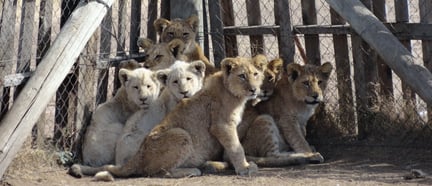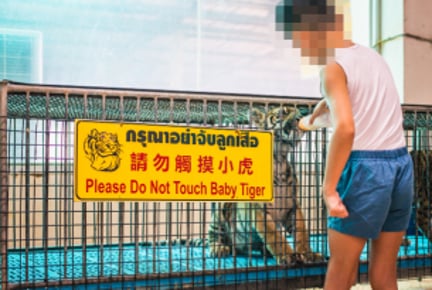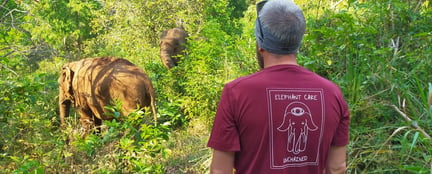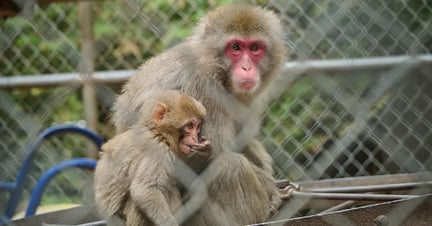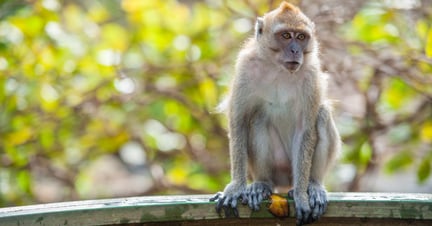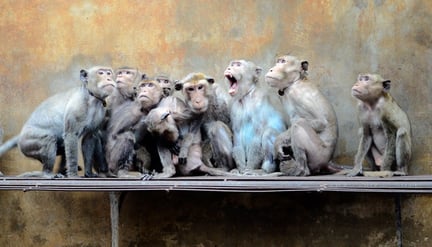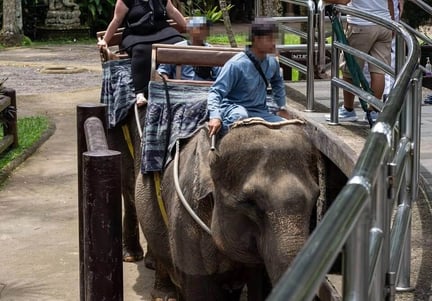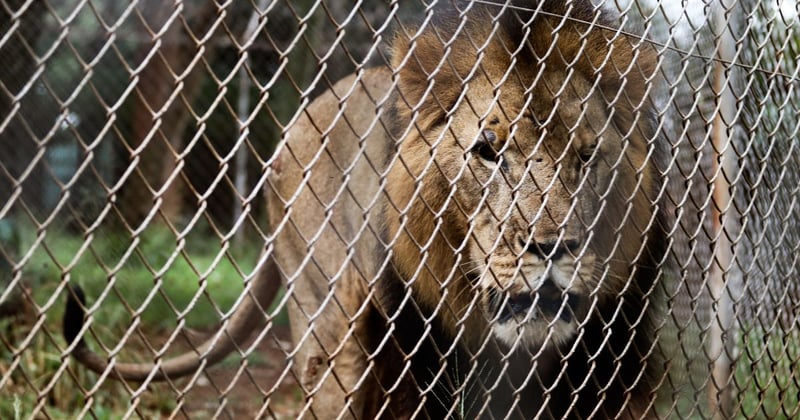
Two elderly lions at Kamo Wildlife Sanctuary in New Zealand have been euthanised, with five more at risk. This case emphasises the urgent need to end captive wildlife entertainment.
Two elderly lions at New Zealand's Kamo Wildlife Sanctuary in Whangārei have been euthanised after the owners announced closure, and determined that ongoing care or relocation for the lions was not an option.
Five other lions remain at the closed site while discussions continue over a possible sale of the property.
Their future is uncertain, although the private facility has indicated it hopes they may avoid the same fate if a new owner is able to provide specialist lifetime care.
The heartbreaking reality of captivity
The euthanasia of these lions has drawn public interest and concern, highlighting the difficult, often hidden realities behind animals kept in captivity for entertainment.
When wild animals age in captive settings, suitable retirement options are limited. Many facilities are not equipped to provide lifelong sanctuary care, and safe relocation becomes increasingly complex as animals grow older and develop specialist medical requirements.
This tragic situation shows that there is no true retirement for wild animals bred and kept captive for visitor experiences. Once the doors close or funding declines, animals who cannot be released into the wild are left vulnerable.
We are heartbroken by the news of the planned euthanasia of the elderly big cats at Whangārei's Kamo Wildlife Sanctuary.
The sad reality for many animals kept captive for wildlife entertainment is that there are no happy endings.
This devastating news makes it clearer than ever that the business model of keeping wild animals in captivity for human entertainment is broken and out of date.
We are calling on the New Zealand Government to end captive wildlife entertainment and the breeding of wild animals for anything other than credible conservation programmes.
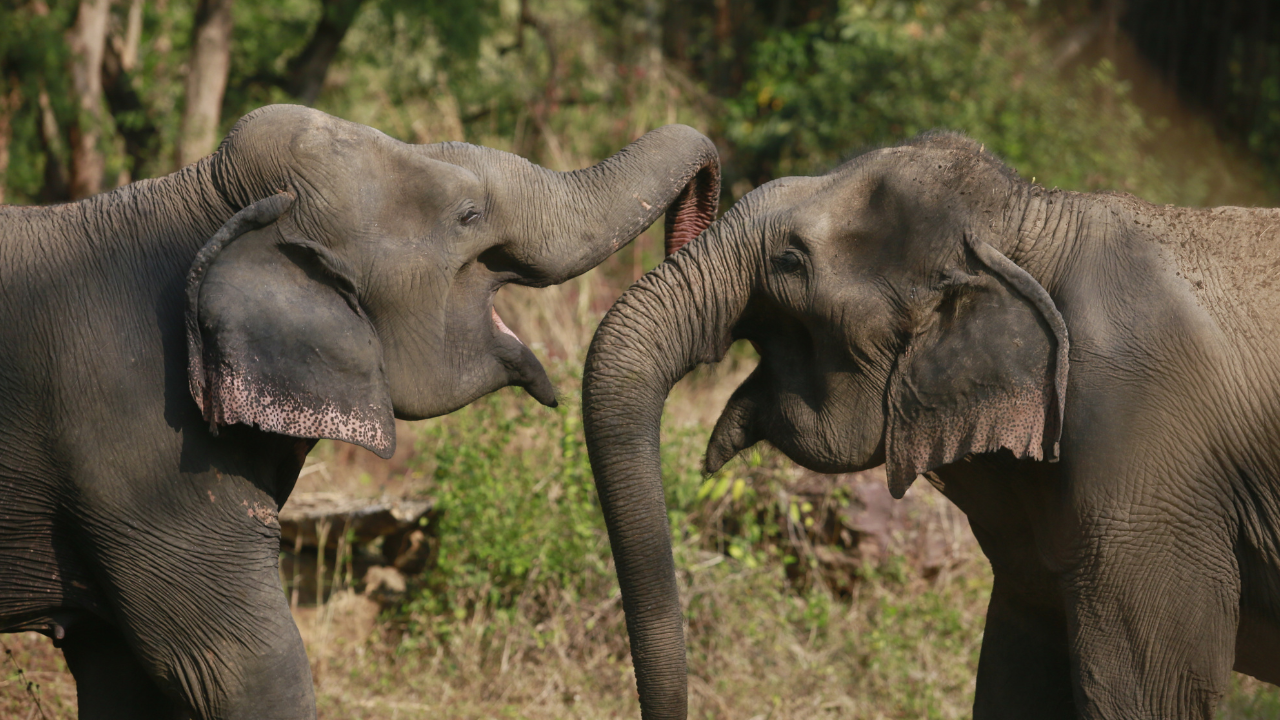
You can make a difference for vulnerable animals
Donate now
When you make a donation, you’ll join a passionate group of supporters who are determined to change the world for animals. We're fighting animal cruelty wherever we find it — are you with us?
Click to donateA model that cannot stand the test of time
Wild animals such as lions are not adapted for life in captivity. In nature, lions roam vast territories, form social prides, and engage in complex behaviours.
In captivity their space, social opportunities, and stimulation are restricted, often leading to frustration, health issues, and a life far removed from their natural existence.
Captive lions are expected to be docile, sometimes even playful, and only when they act on their natural instincts people are reminded that they are wild animals.
Captivity is no life for a wild animal. We need an end to the breeding and keeping of wild animals for entertainment, and a shift toward systems that genuinely protect their welfare.
Tourists can play a big part in this shift by supporting efforts that promote travelling responsibly and seeing wildlife without exploiting them.
Our ongoing work to protect wild animals
We are calling for an end to captive wildlife entertainment globally. We continue to work with governments and partners to strengthen policies, end commercial breeding of wild species, and support sanctuaries focused purely on animal welfare rather than public interactions.
There is growing public support for change. More people are increasingly understanding that wild animals are sentient and belong in the wild, not confined for photo opportunities or performances.
Change must happen
To prevent more situations like this, we are calling for:
- An end to captive wildlife breeding for entertainment or tourism
- Stronger national protections for wild animals kept in private collections
- Greater investment in true sanctuaries focused on welfare, not visitor experiences
The loss of these lions is deeply sad. While the remaining five may still have a future if sanctuary-level care can be secured under new ownership, this situation is just another example that shows that keeping wild animals for entertainment is neither ethical nor sustainable.
All animals deserve a life that respects their nature. To honour these animals, we must ensure no more are confined in a system that cannot give them a life worth living.
Related content
Commercial captive lion breeding
Travel & tourism
Lions are exploited for financial gain around the world; discover what World Animal Protection is doing to put a stop to the commercial breeding industry.
Wildlife Conservation Has a False Ally
Blog
Wildlife farming is often touted as benefitting wildlife conservation but is this true? We explore the conservation case against wildlife farming.
Wildlife Heritage Areas
Heritage Sites
A global programme recognising responsible wildlife-watching destinations that incorporate high standards of animal welfare and biodiversity conservation
